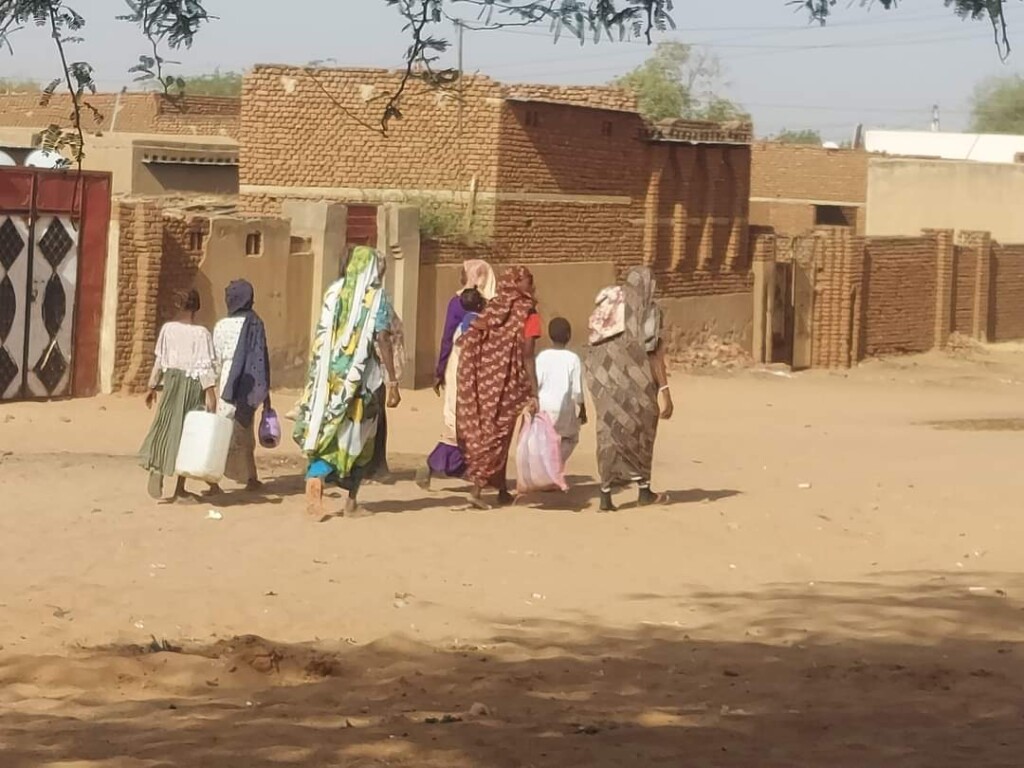UN genocide advisor briefs Security Council on ‘alarming situation’ in Sudan

People in eastern El Fasher, May 20 (Photo: RD)
The UN Special Advisor on the Prevention of Genocide, Alice Wairimu Nderitu, on Wednesday briefed the Security Council in New York on the ongoing armed conflict between the Sudanese Armed Forces (SAF) and Rapid Support Forces (RSF) in Sudan. She raised the alarm, saying that the situation “bears all the marks of risk of genocide, with strong allegations that this crime has already been committed”.
In her briefing, Wairimu Nderitu refers to her concerns about the continuing violence against civilians in Sudan, she raised in the last twenty months “through seven public statements”, in particular on the situation in Darfur, Kordofan, Blue Nile region, and El Gezira.
On Wednesday, her message was even more clear: “I would like today to raise my alarm, in a clear and unequivocal way, about the ongoing situation in Sudan.
“This situation today bears all the marks of risk of genocide, with strong allegations that this crime has already been committed. Civilians are far from protected. Civilian populations are targeted on the basis of identity. In Darfur and El Fasher, civilians are being attacked and killed because of the colour of their skin, because of their ethnicity, because of who they are. They are also targeted with hate speech and with direct incitement to violence.”
She laments that the violence is not new. “In Darfur, the same groups of people were targeted on the basis of their ethnicity, twenty years ago. In Chad, I saw the refugee camps they escaped to, side by side, one camp twenty years old and the other camp just some months old. The conflict has exacerbated the pre-existing ethnic divisions, encouraging more ethnically tribally motivated killings, particularly in Darfur.”
When she visited refugee camps in eastern Chad in October last year, where more than 757,000 people from Darfur fled to since April last year, she found that “Age pyramid statistics in the refugee camps I visited demonstrate that adolescents were present in the camps in a proportion that is far lower than the representation of the adult population and the standard representation of males in refugee camps across the world. This could indicate that this segment of the population was being particularly targeted in West Darfur.
“Ethnically motivated attacks targeting these specific groups – the Masalit, and also the Fur and the Zaghawa – have been, and reportedly continue being, conducted primarily by RSF and allied armed Arab militias. They are reported to act in patterns whereby attacks against specific locations and individuals tend to be announced in advance, which could constitute indication of clear intent to destroy. Explicit calls to wage ‘religious war’ by the leader of the RSF go in the same direction,” she stated.
‘Adolescents were present in the [eastern Chad] camps in a proportion that is far lower than the representation of the adult population’
Wairimu Nderitu further refers to the ongoing attacks on El Fasher, capital of North Darfur, and on villages in the vicinity which “bear signs of not having military objectives and meaning to cause displacement and fear. Reports indicate that these attacks have been characterized by indiscriminate violence, including sexual violence, looting of personal belongings from houses as well as market areas, razing of residential and commercial structures, rustling of livestock and crop destruction. Fighting is affecting civilians disproportionally.
“Parties to the conflict, de facto authorities and armed groups continue to levy so-called ‘protection fees’ and arbitrary ‘taxes’ on the civilian population. Freedom of movement continues to be constrained.
“Most people in El Fasher are of African descent – they are African tribes. Early warning signs indicate that if conflict continues, the risks of racially motivated attacks and killings will increase,” she warned.
The advisor on genocide concludes her appeal on the international community “to take action to protect the Sudanese people from genocide” by stating that “We see clear, explicit and unquestionable signs of an intent to destroy, in whole or in part, protected groups. This is not just a descriptive list of what is happening today in the country. This is a list of risk factors and indicators for the crime of genocide. Genocide, the gravest of crimes.”











 and then
and then